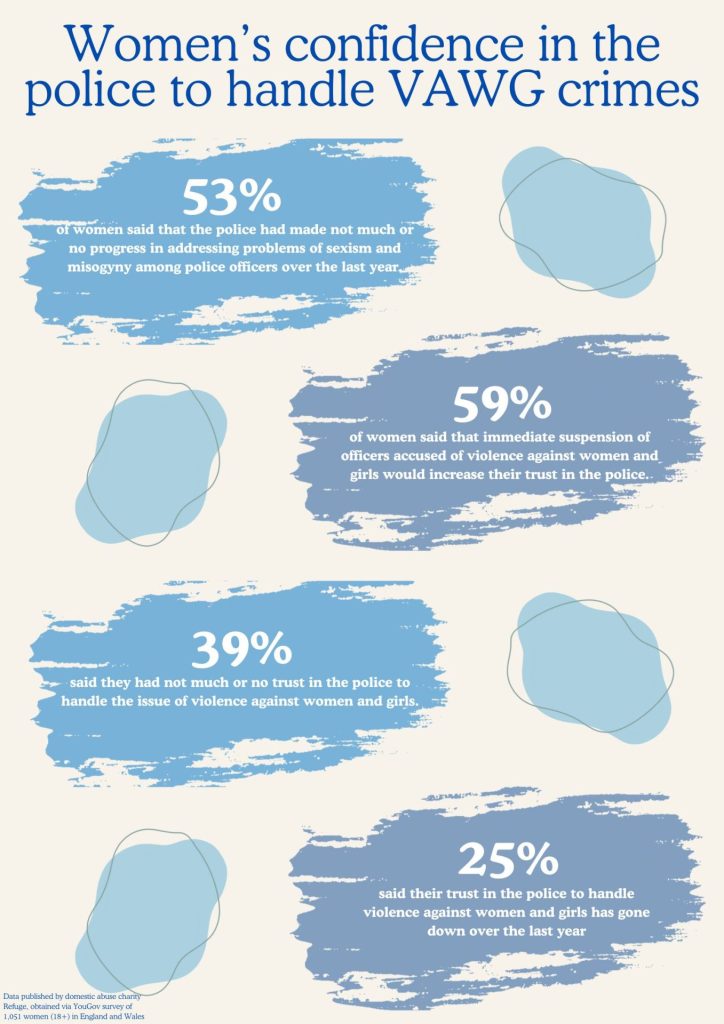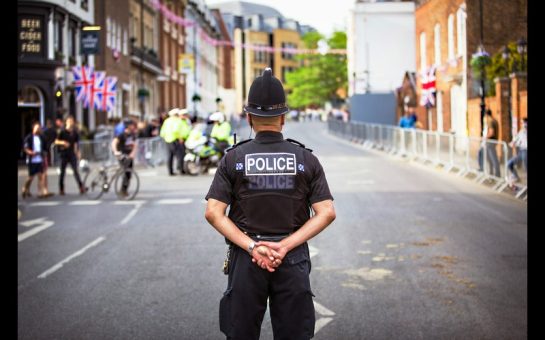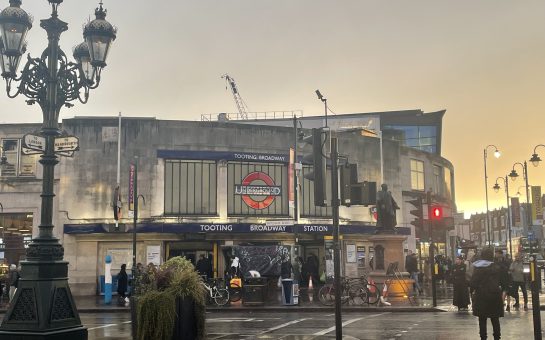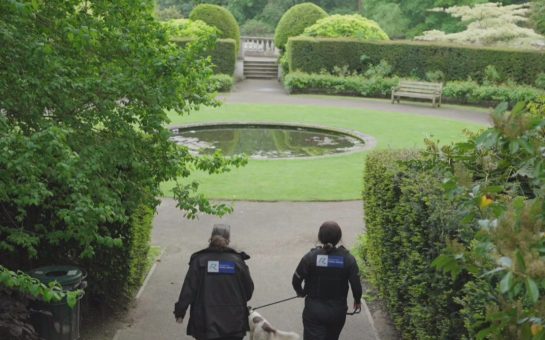A domestic abuse survivor from West London has said she does not trust the police to handle crimes of violence against women and girls.
This comes after new data revealed low rates of women’s confidence in the police to deal with violence against women and girls.
Amja was a victim of domestic abuse and coercive control and is now the founder of Amja Unabashedly, an artistic project which aims to empower people out of domestic abuse and other trauma.
She said: “I have a lived experience of the police not helping me when I reported my situation.
“The way the police handled me was really bad.
“My story is not an anomaly, this is a constant thing.
“Especially with coercive control because it is really difficult to prove what is going on, because there are no physical bruises.
“In 2019 I coined the term ‘the intangible proof of domestic abuse’, because when it is psychological and emotional and there is manipulation going on, people are left to their own devices.”
Statistics published in January by domestic abuse charity Refuge show that more than half of women do not feel confident that police have made progress in addressing sexism and misogyny over the last year.
A quarter of women said their trust in the police to handle violence against women and girls has gone down over the last year and 59% said that the immediate suspension of officers accused of VAWG would increase their trust in the police.

Amja explained that a male officer told her he arrested six men who had been physically violent that day and had to let five of them go, so the chances of the police being able to help her were small.
She added: “That is what a police officer told me, so where is my trust?
“I don’t trust them to handle crimes of violence against women and girls.”
The survey into women’s attitudes, trust and confidence in the police polled more than 1,000 women throughout England and Wales.
It found that 39% of women had little to no trust in the police to handle the issue of violence against women and girls.
The results support Refuge’s calls for immediate suspension of officers accused of violence against women and girls as part of their ‘Remove the Rot’ campaign.
Ellen Miller, Interim CEO of Refuge, said: “It is deeply concerning, but not unsurprising to Refuge, that women’s confidence in the police to tackle violence against women and girls is decreasing.
“Last year, The Baroness Casey Review proved a damning indictment of The Metropolitan Police – exposing it as an institutionally misogynist, homophobic and racist institution.
“With just 12% of officers and staff within this force being suspended from duties after being accused of violent crimes against women and girls.
“For far too long, women have been let-down by the very institution that is supposed to serve and protect them.
“The Metropolitan Police must go beyond lip service to put the safety of women and girls at the centre of reforms within policing.”

Hestia is a charity which works with survivors of domestic abuse and sexual violence across London and the South East.
Alessia Bianco, Head of Everyone’s Business at Hestia, said: “A loss of confidence in the police can impact community trust in law enforcement institutions and the likelihood of women reporting incidents of VAWG.
“This in turn can leave survivors vulnerable to further abuse and violence and can deny them the opportunity to seek redress and support through formal legal channels.”
It was revealed last year that only four in ten Londoners still trust the Metropolitan Police and only 4% of young women say they have a high level of faith in the force.
The Metropolitan Police released an action plan in December to address violence against women and girls.
Deputy Assistant Commissioner Helen Millichap, who leads on tackling violence against women and girls in the Met, said: “We will be judged on our actions and not our words.
“The Met is working to make London safer for women and girls and we know our response needs to be shaped by those affected. This is how we will create confidence that we are a police service that women can trust.
“Our new plan is built around creating that trust and making our tactics more precise, more effective and better resourced.
“We are creating innovative tactics to better target those men who cause the most harm, to get results and ensure victims are at the very heart of our service. ”
Featured image courtesy of https://depositphotos.com/





